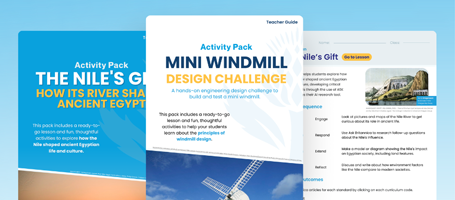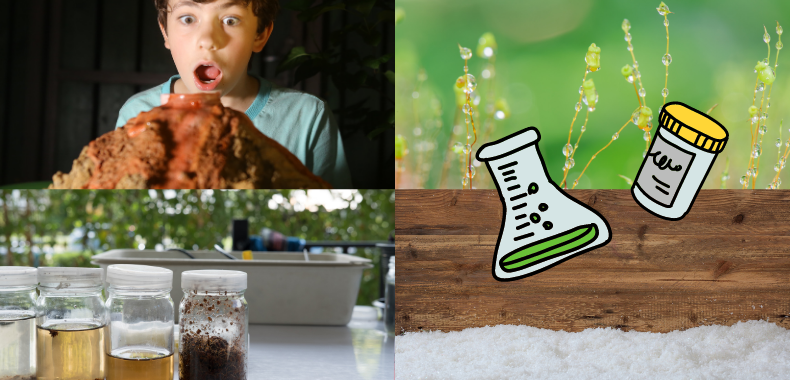Earth Sciences is the study of the Earth, the water on and within it and the air around it.
Earth Science also includes geological science, the study of nature and behaviour of the Earth, hydrological science, the science of water and atmospheric sciences, which is the study of the air.
Here are four of our favourite hands-on Earth Science investigations to help children learn more about the planet that we inhabit.
Task: Exploding a Volcano (Primary/Elementary Level)
A volcano is an opening in Earth’s crust. When a volcano erupts, hot gases and melted rock from deep within Earth find their way up to the surface. Have a go making your own “volcano” to demonstrate the eruption process!
Teacher Tip:
Students can learn more about volcanos using Britannica School. Find the facts on how and why volcanoes erupt in the Primary/Elementary level “Explode a Volcano” resource pack.
Britannica School (Australia) resource pack ↗
Britannica School (New Zealand) resource pack ↗
Britannica School (Asia) resource pack ↗
Britannica School (Asia version in China) resource pack ↗
Task: Homemade Snow – Which Recipe is Best? (Primary/Elementary Level)
Snow is water that freezes and crystallizes in the atmosphere. It may remain in the atmosphere, suspended in cloud formations, or it may fall to Earth and cover the ground for months at a time or, as in polar regions, form a permanent ice cap.
Learn about the properties of snow by making some of your own! Which ingredients do you think will make the most lifelike snow?
Teacher Tip:
Students can learn more about snow using Britannica School. Find information on how snow is formed in the Primary/Elementary level “Snow” resource pack.
Britannica School (Australia) resource pack ↗
Britannica School (New Zealand) resource pack ↗
Britannica School (Asia) resource pack ↗
Britannica School (Asia version in China) resource pack ↗
Task: Conduct a Soil Analysis (Middle Level)
One of the most important natural resources is soil. Like air and water, soil is necessary to life on Earth. Without it, plants could not grow and plant-eating animals could not live; meat-eating animals would also perish. Civilisations depend on the quality of their soil to grow their food and to serve as a living filter that purifies the wastes they produce.
Investigate the composition of soil from your local garden by conducting your own soil analysis.
Teacher Tip:
Students can learn more about soil using Britannica School. Find information on the composition of soil and why it plays such an important part in sustaining life on Earth in the Middle level “Soil” resource pack.
Britannica School (Australia) resource pack ↗
Britannica School (New Zealand) resource pack ↗
Britannica School (Asia) resource pack ↗
Britannica School (Asia version in China) resource pack ↗
Task: Water Filtration (Middle Level)
Nearly three-fourths of Earth’s surface is covered with water. Perhaps the most important liquid in the world, water is usually easy to get from rain, springs, wells, streams, rivers, ponds, and lakes. It fills the vast ocean beds. As vapor, water is also present in the air, where it often condenses into clouds.
Create your own rainwater gauge to calculate the volume of water that gets filtered by your garden.
Teacher Tip:
Students can learn more about water using Britannica School. Find more information in the Middle level “Water Filtration” resource pack.
Britannica School (Australia) resource pack ↗
Britannica School (New Zealand) resource pack ↗
Britannica School (Asia) resource pack ↗
Britannica School (Asia version in China) resource pack ↗
These activities and resources have been created using content from Britannica School, the go-to site for safe, comprehensive student research. Contact your librarian to find out if your institution already has access. Find out more about Britannica School or set up your own free trial.
More Educator Resources
Sign up with your email for more free resources from Britannica.

